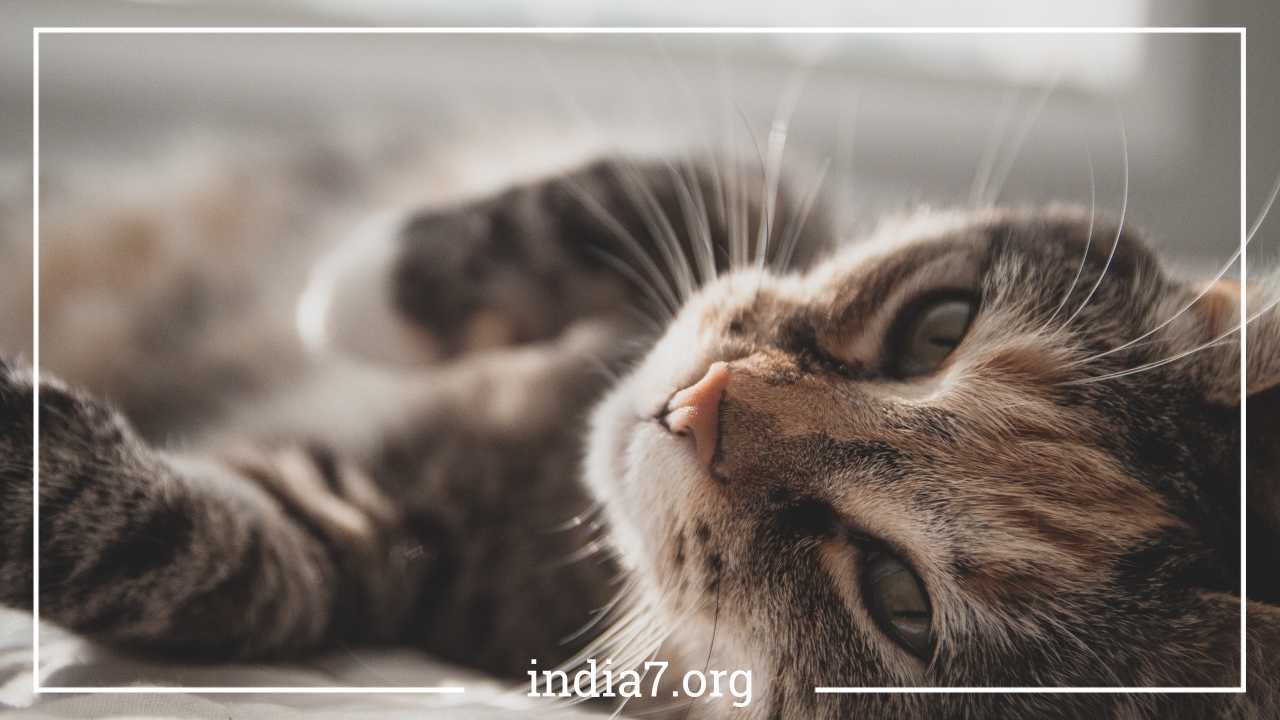Heartworm Treatment For Cats: Comprehensive Guide to Feline Heartworm Disease

Heartworm Treatment For Cats
As pet owners, we prioritize the health and well-being of our furry companions. One of the most critical aspects of maintaining your cat’s health is understanding the unique challenges posed by heartworm disease and how to treat and prevent it.
Heartworm disease in cats is a serious and potentially life-threatening condition that requires careful attention and informed decisions. In this comprehensive guide, we will delve deep into heartworm treatment for cats, covering topics such as the differences between cat and dog treatment, diagnosis, treatment options, prevention, and much more.
Understanding Heartworm Disease in Cats
Heartworm disease, caused by the parasitic worm Dirofilaria immitis, is a well-known concern in dogs. However, it is essential to recognize that heartworms can also affect cats. While cats are not the primary host for heartworms, they can become infected when bitten by an infected mosquito. Unlike in dogs, where the worms grow into large adults, in cats, the worms typically remain smaller and shorter in length. Despite their smaller size, heartworms can have severe and even fatal consequences for our feline friends.
Symptoms of Heartworm Disease in Cats
Heartworm disease in cats can manifest in various ways, and the symptoms may be subtle or severe. Some common symptoms include:
- Coughing: Cats with heartworm disease may experience coughing, which can be mistaken for respiratory infections or asthma.
- Vomiting: Frequent vomiting can occur due to heartworm-associated inflammation.
- Lethargy: Infected cats may become lethargic and lose interest in their usual activities.
- Difficulty Breathing: Cats may exhibit labored breathing or rapid breathing as a result of heartworm infection.
- Weight Loss: Unexplained weight loss is another potential sign of heartworm disease.
- Collapse or Sudden Death: In some cases, heartworm-infected cats may experience sudden collapse or even die without prior warning.
Differences Between Heartworm Treatment in Cats and Dogs
It is crucial to emphasize that heartworm treatment for cats differs significantly from that for dogs. Never should you administer heartworm treatment designed for dogs to your cat, or vice versa. Each species has unique characteristics, and their response to treatment varies. Here are some key differences:
- Medications: The medications used to treat heartworm disease in cats are different from those for dogs. Cats have a lower tolerance for certain medications, and their treatment regimen may involve multiple drugs.
- Treatment Duration: Cat heartworm treatment often spans a more extended period than that for dogs, and it can be more complex due to the risk of severe side effects.
- Severity of Disease: Heartworm disease tends to be more severe in cats, even with a lower worm burden. Cats are at a higher risk of experiencing complications during treatment.
- Side Effects: Cats may experience severe side effects during treatment, including complications caused by dying worms. These side effects require close monitoring and medical attention.
Diagnosis of Heartworm Disease in Cats
If you suspect that your cat may have heartworm disease or if your cat displays any of the aforementioned symptoms, it is crucial to seek immediate veterinary care. Diagnosis typically involves the following steps:
- Physical Examination: Your veterinarian will conduct a thorough physical examination of your cat to assess its overall health and look for any signs of heartworm disease.
- Blood Tests: Blood tests, such as antigen tests and antibody tests, are commonly used to detect the presence of heartworms in cats. These tests can confirm the diagnosis.
- Imaging: In some cases, imaging techniques such as X-rays or ultrasounds may be employed to visualize the heart and lungs for evidence of heartworm infection.
- Microfilaria Detection: Although less common in cats, microfilariae (larval forms of heartworms) can sometimes be found in a blood sample.
Once your cat is diagnosed with heartworm disease, the next step is to determine the most appropriate treatment plan.
Treatment Options for Heartworm Disease in Cats
Treating heartworm disease in cats is a complex and challenging process due to several factors, including the potential severity of the disease and the unique physiology of cats. The primary goal of treatment is to eliminate the heartworms while minimizing the risk of complications. Here are the main treatment options available for heartworm-infected cats:
- Hospitalization: In severe cases, especially when cats show signs of respiratory distress, hospitalization may be necessary. This ensures that the cat receives round-the-clock care and monitoring.
- Medication: Medications to treat heartworm disease in cats are available, but they are different from those used in dogs. Your veterinarian will determine the most suitable medication based on your cat’s condition.
- Surgery: In some instances, surgical removal of heartworms may be considered, particularly when the worms are causing severe complications. This is a delicate procedure that requires a skilled veterinary surgeon.
- Supportive Care: Cats with heartworm disease may require supportive care to manage symptoms and complications. This can include medications to alleviate coughing, reduce inflammation, and support the respiratory system.
- Strict Rest: Cats undergoing heartworm treatment should be kept as calm and rested as possible to minimize the risk of complications.
It’s important to note that treatment for heartworm disease in cats can be risky, and not all cats respond well to treatment. The dying worms themselves can induce side effects, often leading to serious issues in a significant percentage of treated cats. Dying worms can become lodged in the arteries of the heart, which are already inflamed due to the presence of the worms. When a lodged worm starts to decompose, it can lead to very serious problems. Therefore, close veterinary supervision is essential throughout the treatment process.
Selecting the Right Treatment Approach
The choice of treatment approach for heartworm disease in cats is not one-size-fits-all. It depends on several factors, including:
- Severity of Infection: The extent of your cat’s heartworm infestation plays a crucial role in determining the most suitable treatment plan.
- Overall Health: Your cat’s general health and any preexisting medical conditions will influence the treatment approach and medications used.
- Risk of Complications: Some cats are at a higher risk of experiencing complications during treatment, and this must be considered when planning the treatment strategy.
- Medication Tolerance: Cats can have varying levels of tolerance to different medications, so your veterinarian will select medications that are safe and effective for your specific cat.
- Surgical Options: If necessary, your veterinarian will discuss the potential need for surgical removal of heartworms and the associated risks.
The decision regarding the best treatment approach for your cat should be made in consultation with your veterinarian, who will consider all relevant factors to provide the most appropriate care.
Challenges in Treating Heartworms in Cats
Treating heartworm disease in cats is not without its challenges, and it is essential for cat owners to be aware of these complexities:
- Limited Treatment Options: Compared to dogs, there are fewer treatment options available for cats with heartworm disease. This limitation stems from the increased risk of complications in felines.
- Risk of Side Effects: Cats undergoing treatment for heartworms are at risk of experiencing side effects, some of which can be severe. These side effects may include respiratory distress, vomiting, and lethargy.
- Long Treatment Duration: The treatment process for cats can be lengthy, often spanning several months. This requires a dedicated commitment to administering medications and monitoring your cat’s progress.
- Monitoring: Close monitoring of your cat’s condition is crucial throughout the treatment period. Regular check-ups and diagnostic tests are necessary to assess the effectiveness of treatment and address any emerging issues promptly.
- Potential for Reinfection: After successful treatment, cats can still be at risk of reinfection if preventive measures are not taken. Prevention is a critical aspect of managing heartworm disease in cats.
Prevention of Heartworm Disease in Cats
As with many health conditions, prevention is often more manageable and safer than treatment. Preventing heartworm disease in cats involves a combination of strategies:
- Year-Round Prevention: Use heartworm preventive medications recommended by your veterinarian all year round, even in regions with seasonal mosquito activity. Cats can be infected by a single mosquito bite.
- Regular Veterinary Check-ups: Schedule regular check-ups with your veterinarian to ensure your cat’s health and discuss preventive measures.
- Mosquito Control: Minimize your cat’s exposure to mosquitoes by keeping them indoors during peak mosquito activity times, using screens on windows and doors, and reducing outdoor standing water sources that can attract mosquitoes.
- Environmental Control: Consider mosquito-repelling measures in your home, such as mosquito nets or mosquito-repelling plants.
- Multi-Pronged Approach: Combining both mosquito control and preventive medications provides the most robust protection against heartworm infection.
Your veterinarian can guide you in selecting the most appropriate preventive measures for your cat based on your location and individual circumstances.
Conclusion
Heartworm disease in cats is a serious and potentially life-threatening condition that demands careful attention, prompt diagnosis, and tailored treatment. While it poses unique challenges, especially in comparison to its prevalence in dogs, heartworm disease can be managed with the right approach. Remember these key takeaways:
- Differentiating between heartworm treatment for cats and dogs is crucial. Never administer dog-specific heartworm medications to your cat.
- Diagnosis involves physical examinations, blood tests, and imaging to confirm the presence of heartworms.
- Treatment options include medications, surgery, and supportive care, but the approach depends on factors such as the severity of infection and the cat’s overall health.
- Treatment can be complicated, and cats may experience side effects, making close veterinary monitoring essential.
- Prevention is the best defense against heartworm disease. Consult with your veterinarian to establish a year-round preventive plan for your cat.
By staying informed and working closely with your veterinarian, you can protect your beloved feline companion from the dangers of heartworm disease and ensure a long, healthy, and happy life together.



